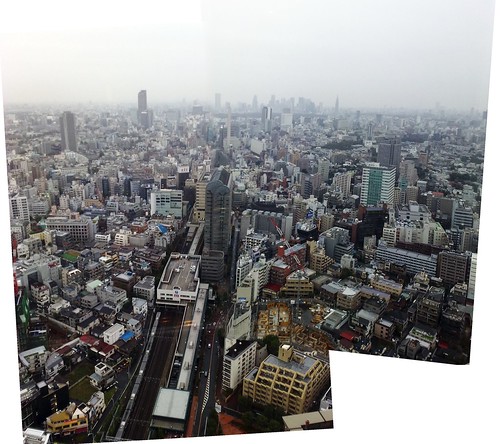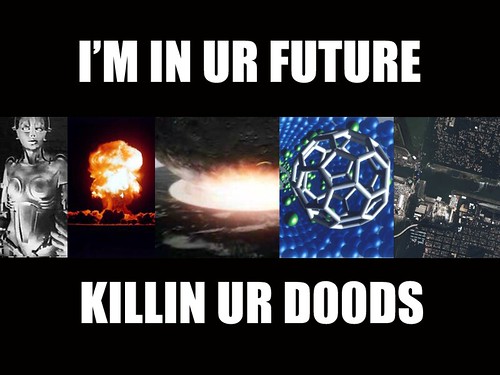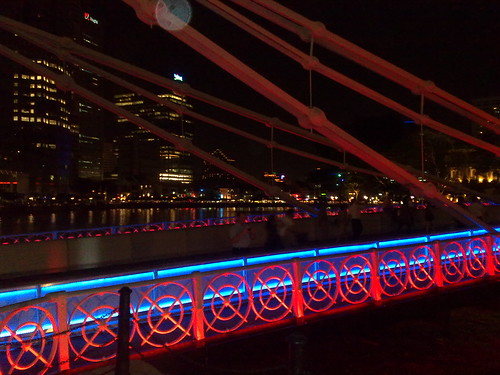"What do Americans think of Singapore?"
Three different people, all government officials, asked me some variant of that question. And all three times, they eventually made it clear that they were wondering how often "caning" came up in discussions of the country.
I had to tell them: Pretty much every time.
Singapore is a nation coming to terms with its own identity. The habit of many of the people I conversed with was to speak of Singapore as a developing country. But, at least in terms of infrastructure and commerce, Singapore is clearly an industrial -- or, really, post-industrial -- nation. Singapore is the quintessential leapfrog society: from the mass transit to the information grid, from the sparkling malls to the global cuisine, it could easily stand as a full citizen of the first world. But that shift, from a tiny, scrappy "spot" in the heart of Southeast Asia to world-class city/state, has been a bit jarring. Practices that they saw as appropriate for the former -- like caning -- now seem vaguely embarrassing.
The "air-conditioned nation" label in the title of this piece comes from a book of the same name, by Singapore journalist and essayist Cherian George. It's more than appropriate: Being a mere two degrees off the equator, Singapore's weather defines humid. As a lifelong California boy, the heat didn't bother me, but I reeled from the moisture in the air. While the residents clearly tolerate it better than I could, a shift is underway that adds to the identity crisis.
Over the past couple of decades, according to the locals I spoke to, Singapore has started to put air conditioning everywhere. Head down a sidewalk, and every open business doorway offers an arctic blast. I started to expect to see micro-storms emerge as the warm, moist air from the outside runs into the cold, dry air in the stores.
As a result of the increasing ubiquity of "aircon," complaints by locals about the humidity are on the rise, as well. More than one person I spoke to described Singapore, sheepishly, as a "nation of whiners." I didn't see that, myself, but that's hardly the point: It's how they see themselves.
But there's one last twist to the evolving identity of the country. Singapore was, originally, a near-barren island off the tip of Malaysia, with little in the way of population. The country's populace is entirely a result of colonialism, as people from a variety of nearby nations came in to work and trade with the British rulers. After post-British rule by Japan and then Malaysia, Singapore gained independence in 1965. The architecture of the city is a lovely mix of ultra-modern and century-old buildings, and many of the streets carry the names of colonial-era British personalities.
Walking back to my hotel last night, after wandering the riverfront -- where boats that once carried small trade cargo now carry tourists, and where colonial government office buildings now hold restaurants and shopping centers -- it struck me: Singapore has turned its colonial past into an amusement park.
Underlying this evolution, however, is a stark sense of insecurity. I was invited here to talk about risks and uncertainty, and nearly every group I spoke to asked about terrorism and technological threats. Environmentally, Singapore is utterly dependent upon its neighbors and global trade for its resources. If there ever was a country vulnerable to open source warfare and system disruption, Singapore is it.
So on the minds of many Singaporean government officials, and likely many citizens as well, is a troubling dilemma: Who are we -- and how much longer will we even be around to ask that question?







